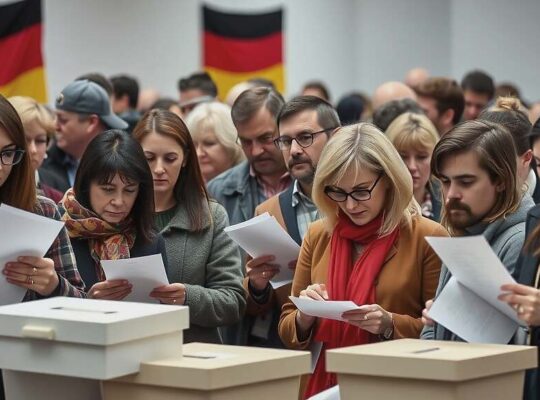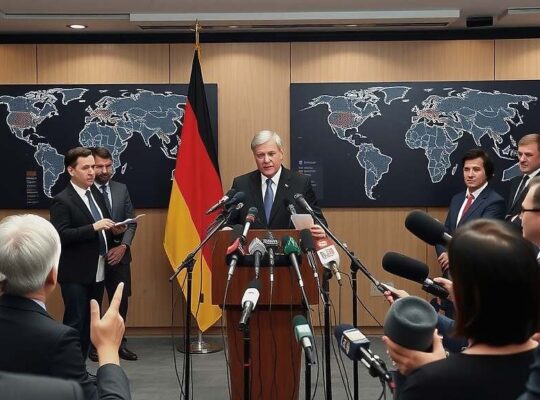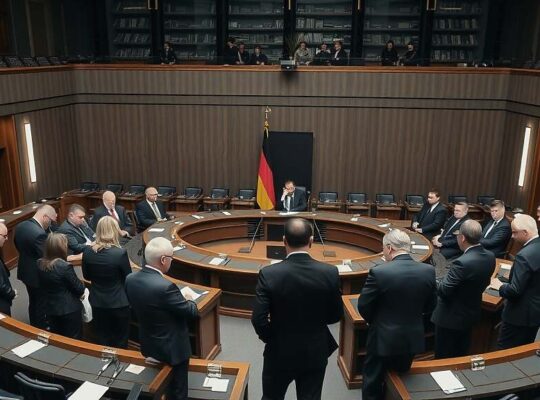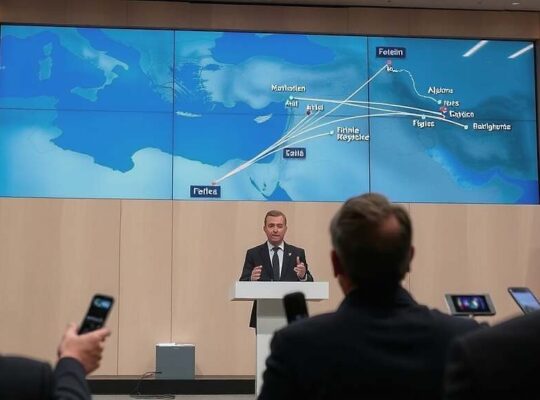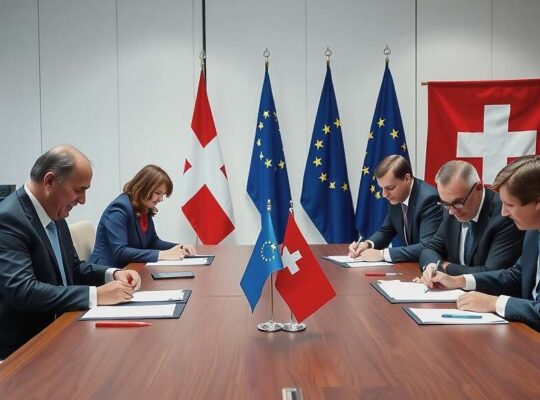Leading figures within the Green Party, Katharina Dröge and Felix Banaszak, have expressed concern over the current coalition government’s perceived reliance on political opponents in the advancement of energy transition policies. Speaking to the “Kölner Stadt-Anzeiger”, Dröge and Banaszak suggested that figures like Friedrich Merz hold significant influence, effectively placing them within the control of established fossil fuel interests.
The Greens’ representatives also criticized Chancellor Scholz for allegedly reneging on commitments made within her coalition agreement, specifically referencing the delayed implementation of a proposed electricity tax relief for families. The promised relief, initially outlined as an immediate measure, would have provided approximately 100 euros annually per family, a pledge reportedly unmet. They noted a rapid deterioration of relations between the CDU/CSU (Union) and the SPD within a remarkably short timeframe, hindering progress.
Acknowledging past shortcomings within their own periods in government, Dröge and Banaszak admitted to a tendency to highlight successes achieved by the Green Party in comparison to previous administrations. They questioned the effectiveness of this approach, suggesting it failed to adequately address the disappointment of younger demographics seeking more substantial action. They emphasized a growing demand for politicians to actively champion their beliefs, engage in constructive debate and forcefully advocate for the interests of their constituents.
Turning to the rise of the AfD, Dröge and Banaszak advocated for a formal review process, potentially leading to a ban, if rigorous constitutional criteria are met. To facilitate this, they proposed the creation of a joint working group comprised of federal and state authorities to meticulously examine evidence and ensure compliance with the standards set by the Federal Constitutional Court.
Cautioning against reactive measures, the Green politicians warned against a posture of fearful observation toward the AfD, likening it to a rabbit observing a snake. While acknowledging potential backlash from a ban request, they argued that the potential for significant harm to vulnerable populations – including concerns over potential deportations, restricted access to education for children with disabilities and the marginalization of LGBTQ+ individuals – necessitates a proactive and resolute democratic response, rather than a passive acceptance of anxiety.



